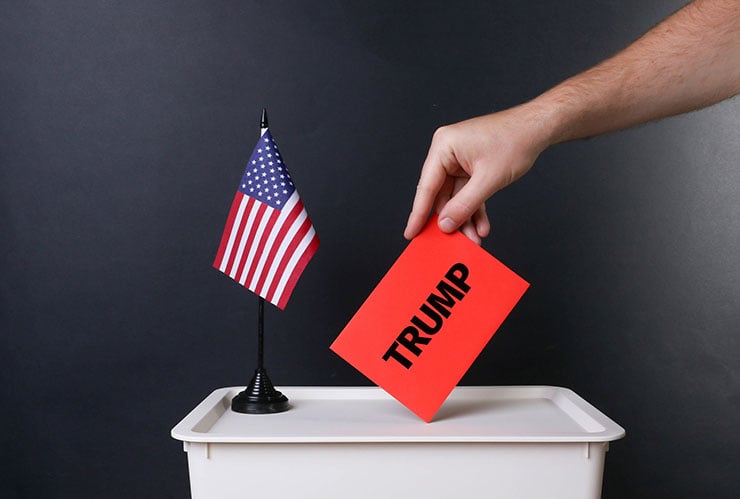Monday was a good day for Donald Trump and for the Supreme Court. The Court, as most analysts expected, ruled unanimously that no state has the power, pursuant to the Constitution’s Fourteenth Amendment, to remove the former president from its ballots on the grounds that he had committed “insurrection.”
That part of the Constitution does provide that those guilty of insurrection cannot hold “any office” of the United States, but the Court, in a unanimous ruling held that this is a power to be exercised only by federal officials, lest presidential elections become some sort of “chaotic …patchwork” of inconsistent decisions as to who can be candidates and who cannot.
Five Justices—Chief Justice John Roberts, and Associate Justices Clarence Thomas, Samuel Alito, Neil Gorsuch, and Brett Kavanaugh—joined in ruling that the relevant passage of the Fourteenth Amendment was not self-executing. This means that until and unless Congress passes a statute clarifying, presumably, what constitutes an insurrection, which officials are covered, and what standards of proof and other procedures are necessary to bar persons from office, this particular constitutional provision is a dead letter.
Curiously, the four women on the Court, Associate Justices Sonya Sotomayor, Elena Kagan, Amy Coney Barrett, and Ketanji Brown Jackson, decided not to concur in the Court’s holding regarding the need for congressional action to animate the insurrection provision. Justice Barrett wrote a separate one-person concurrence, indicating that given the unanimity on the lack of ability of any state to act to bar Trump, there was no need to go further. As she gently put it, “Writings on the Court should turn the national temperature down, not up. For present purposes, our differences are far less important than our unanimity. All nine Justices agree on the outcome of this case. That is the message Americans should take home.”
That may not have been quite the message the three Democrat-appointed justices had in mind. Hinting quite broadly that they believe Trump possibly to have been an “oathbreaking insurrectionist” they lamented that the five-person majority had unnecessarily decided “novel constitutional questions to insulate this Court and petitioner from future controversy.” Just what future controversies the three had in mind was unclear, although it could presumably include a single federal judge or federal district attorney who might take it upon himself to bar Trump from office. Indeed, the three stated that the majority’s decision “forecloses judicial enforcement of [the insurrection clause of the Fourteenth Amendment] such as might occur when a party is prosecuted by an insurrectionist and raises a defense on that score[!]”
Nevertheless, Monday’s decision was a movement in support of the rule of law over and against lawfare and the rule of unhinged partisan power. How sad that the three Democrats’ concurrence seems almost to condone the possibility of further judicial or prosecutorial chicanery. It’s still anyone’s guess how the Court will deal with other instances of state and federal prosecutorial persecution of Trump, but he can now engage in some limited celebration.

Leave a Reply